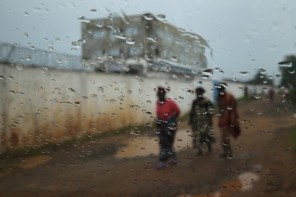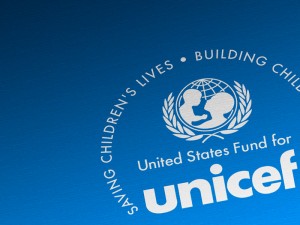Okay, I have no idea. That’s a teaser, one designed especially for Twitter. Sometimes, it takes a bit of cyberwhoring to get a click or two…
I actually have no idea how to bring peace anywhere, but I want to know. Which is why I’m spending these coming months wandering around Africa for the Pulitzer Center on Crisis Reporting. You can follow the reporting on my Pulitzer blog, which has a few of my first posts from the Central African Republic.
In my second collaboration with the Pulitzer Center, I’ll be writing about the UN’s new experiment in ending war: the Peacebuilding Commission (PBC). I’ll travel to all four countries on the PBC agenda and see how it’s going. I spent most of May in the CAR; I’ll spend June in Burundi; and in July I’ll be in Sierra Leone and Guinea Bissau.
I’d love it if you followed along, either here or on the Untold Stories blog. And if you have ideas that would make my coverage better, I’m all ears. Please, please drop me a line.
From my Pulitzer project page, here’s the idea behind all this:
For decades, the international community has been dogged by its failures to protect civilians from war. In the 1990s, peacekeeping forces floundered in Somalia, abandoned 8,000 unarmed Muslim men and boys to slaughter in Srebrenica, and stood by in Kigali as 800,000 Tutsi were killed in the Rwandan genocide. Meanwhile, old conflicts renewed themselves — despite celebrated peace agreements — around the world. The combination called into question our ability to maintain and protect peace.
Five years ago, the United Nations embarked upon a new experiment in shaping peace. The UN Peacebuilding Commission is designed to catalyze financing, concentrate attention and create incentives that support lasting peace. The goal is to support weak post-conflict countries as they transition into more stable societies. From reintegrating ex-rebels to laying the groundwork for elections, from brokering security sector reform to broadening development, the Peacebuilding Commission looks at it all.
But what does its own work look like, five years later? This year, the Commission is undergoing a thorough review. As representatives to the United Nations evaluate their colleagues’ work, this reporting project visits the people who are supposed to benefit from the new peace. In Guinea Bissau, Burundi, Sierra Leone and Central African Republic, this series of reports asks, does peace finally have a chance?



Curses! The teaser headline worked for me…although, truth be told, I would have drifted over here anyway once my RSS reader got updated.
I don’t have anything to contribute, because my brain is absolutely fried after writing 300 words about a riveting school board agenda review session , but I look forward to reading what you uncover.
Peace Ms Moore, my name is Robert trujillo.Im an illustrator/Muralist from Oakland, California. I just read the majority of your piece on Land and i must say that it makes a lot of sense. It makes me think about similar problems right down the block from me in Oakland. Here they call it turf, and there have been wars raging here for years over who controlled it, not who owned it. Your piece about land in Africa is/was dope! I have some Qs for you…i’ll email.Take care.
-Rob